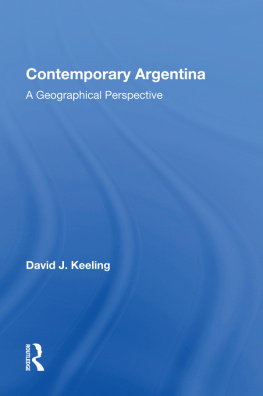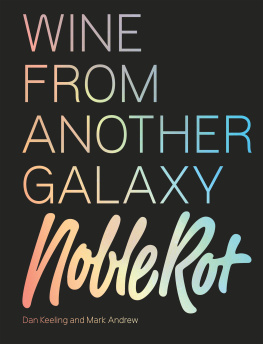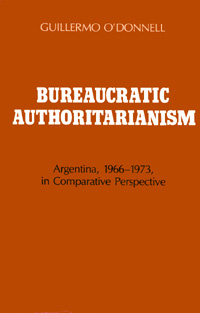David J. Keeling - Contemporary Argentina: A Geographical Perspective
Here you can read online David J. Keeling - Contemporary Argentina: A Geographical Perspective full text of the book (entire story) in english for free. Download pdf and epub, get meaning, cover and reviews about this ebook. year: 1997, publisher: Westview Press, genre: Politics. Description of the work, (preface) as well as reviews are available. Best literature library LitArk.com created for fans of good reading and offers a wide selection of genres:
Romance novel
Science fiction
Adventure
Detective
Science
History
Home and family
Prose
Art
Politics
Computer
Non-fiction
Religion
Business
Children
Humor
Choose a favorite category and find really read worthwhile books. Enjoy immersion in the world of imagination, feel the emotions of the characters or learn something new for yourself, make an fascinating discovery.
- Book:Contemporary Argentina: A Geographical Perspective
- Author:
- Publisher:Westview Press
- Genre:
- Year:1997
- Rating:5 / 5
- Favourites:Add to favourites
- Your mark:
- 100
- 1
- 2
- 3
- 4
- 5
Contemporary Argentina: A Geographical Perspective: summary, description and annotation
We offer to read an annotation, description, summary or preface (depends on what the author of the book "Contemporary Argentina: A Geographical Perspective" wrote himself). If you haven't found the necessary information about the book — write in the comments, we will try to find it.
Contemporary Argentina: A Geographical Perspective — read online for free the complete book (whole text) full work
Below is the text of the book, divided by pages. System saving the place of the last page read, allows you to conveniently read the book "Contemporary Argentina: A Geographical Perspective" online for free, without having to search again every time where you left off. Put a bookmark, and you can go to the page where you finished reading at any time.
Font size:
Interval:
Bookmark:
- 1 Key Geographical Trends
- Uneven Regional Development
- A Theoretical Framework
- Restructuring Argentinas Pillars of Development
- Argentinas Spatial Dichotomies
- 2 The Development of Regional and International Relationships
- On the Margins of Empire (15361852)
- Integration into the World Economy (18521930)
- Disengagement from the World Economy (19301990)
- Globalization and the New Argentina
- 1 Key Geographical Trends
- Part Two Restructuring Argentinas Pillars of Development
- 3 Society and Place
- Key Demographic Trends
- Social Indicators of Uneven Development
- 4 Capital, Labor, and Production
- Recapitalizing Argentina
- Restructuring the Labor Market
- Restructuring Patterns of Production and Trade
- 5 Transport and Communication
- Global Links to Global Cities
- Hemispheric Connectivity
- National Transport Networks
- Future Transport and Communication Strategies
- 3 Society and Place
- Part Three The Geographical Impact: Local and Regional Development Issues
- 6 The Megacity
- Megacephalous Urban Growth
- Contemporary Buenos Aires
- 7 Prosperous Agroindustrial Provinces
- The Pampeana Region
- Future Problems and Prospects
- 8 The Challenge of Transition Areas
- Agroindustrial Oases of the Cuyo
- Future Development
- Patagonia: An Underdeveloped Frontier?
- Future Development Prospects
- 9 The Problem of Submerging Rural Areas
- The Northeast
- The Northwest
- 6 The Megacity
- Part Four Argentina in the Twenty-First Century
- 10 Future Argentina
- Argentinas Five Fundamental Myths
- Future Directions and Policy Issues
- 10 Future Argentina
- xxv
Font size:
Interval:
Bookmark:
Similar books «Contemporary Argentina: A Geographical Perspective»
Look at similar books to Contemporary Argentina: A Geographical Perspective. We have selected literature similar in name and meaning in the hope of providing readers with more options to find new, interesting, not yet read works.
Discussion, reviews of the book Contemporary Argentina: A Geographical Perspective and just readers' own opinions. Leave your comments, write what you think about the work, its meaning or the main characters. Specify what exactly you liked and what you didn't like, and why you think so.










